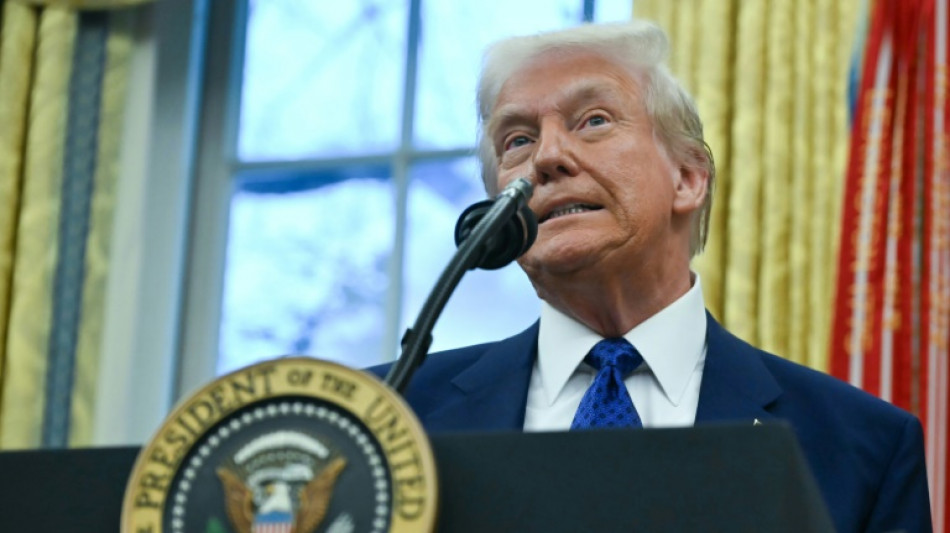
-
 Kenya's Kipyegon seeks history with four minute mile attempt
Kenya's Kipyegon seeks history with four minute mile attempt
-
Gunmen kill 10 in crime-hit Mexican city

-
 Olympic surfing venue battling erosion threat
Olympic surfing venue battling erosion threat
-
Relief, joy as Israel reopens after Iran war ceasefire

-
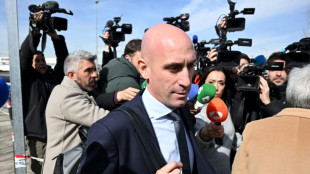 Spain upholds fine against Rubiales for Hermoso forced kiss
Spain upholds fine against Rubiales for Hermoso forced kiss
-
Iran hangs three more accused of spying as fears grow for Swede
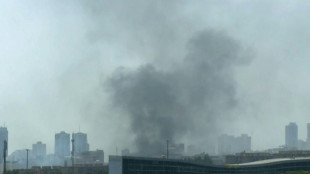
-
 Australia choose to bat first in first Test against West Indies
Australia choose to bat first in first Test against West Indies
-
Gambhir backs India bowlers to 'deliver' despite first Test misery
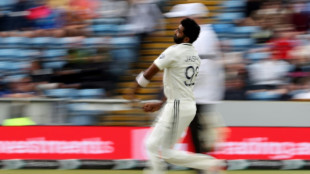
-
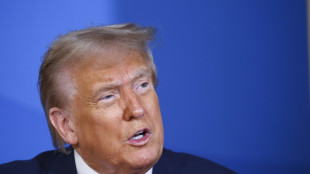 Trump reassures allies as NATO agrees 'historic' spending hike
Trump reassures allies as NATO agrees 'historic' spending hike
-
England's Duckett says mindset change behind Test success
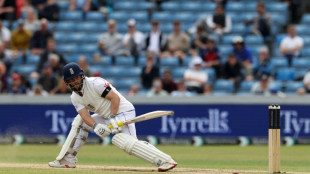
-
 Trump sees 'progress' on Gaza, raising hopes for ceasefire
Trump sees 'progress' on Gaza, raising hopes for ceasefire
-
UK's Glastonbury Festival opens gates amid Kneecap controversy

-
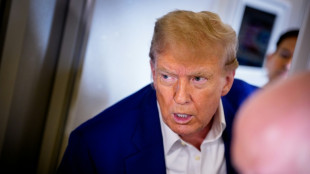 Oil rebounds as markets track Iran-Israel ceasefire
Oil rebounds as markets track Iran-Israel ceasefire
-
Cable theft in north France disrupts Eurostar traffic
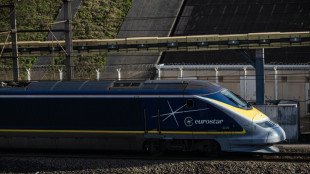
-
 Cambodians at quiet Thai border plead for peace
Cambodians at quiet Thai border plead for peace
-
Trump plays nice as NATO eyes 'historic' spending hike
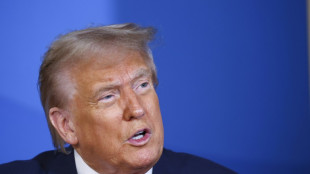
-
 Barcelona announce Camp Nou return for August 10
Barcelona announce Camp Nou return for August 10
-
Trump insists Iran nuclear programme set back 'decades'

-
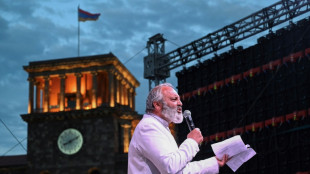 Armenia PM says foiled 'sinister' coup plot by senior cleric
Armenia PM says foiled 'sinister' coup plot by senior cleric
-
Turkey breathes easier as Iran-Israel truce eases fallout risk
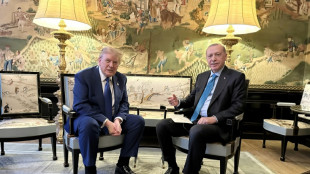
-
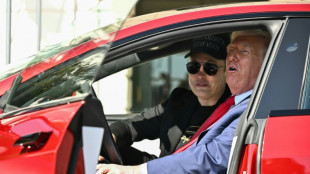 Tesla sales skid in Europe in May despite EV rebound
Tesla sales skid in Europe in May despite EV rebound
-
'Not Test class': Pundits tear into India after England chase 371
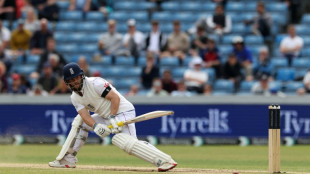
-
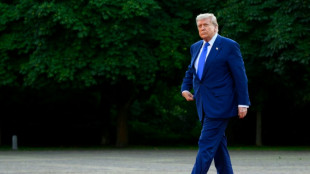 Trump whirlwind tests NATO summit unity
Trump whirlwind tests NATO summit unity
-
Justice orders release of migrants deported to Costa Rica by Trump
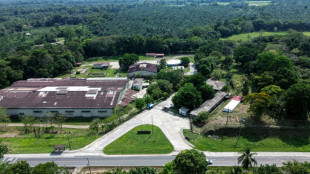
-
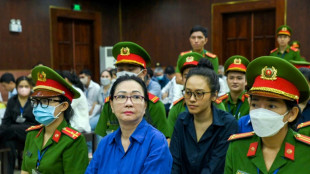 Vietnam tycoon will not face death penalty over $27 bn fraud: lawyer
Vietnam tycoon will not face death penalty over $27 bn fraud: lawyer
-
Vietnam abolishes death penalty for spying, anti-state activities
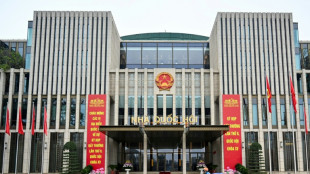
-
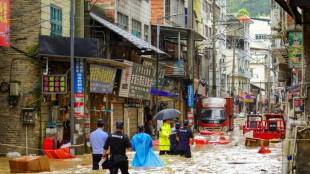 Over 80,000 people flee severe flooding in southwest China
Over 80,000 people flee severe flooding in southwest China
-
AI fakes duel over Sara Duterte impeachment in Philippines

-
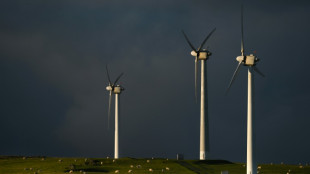 UK carbon emissions cut by half since 1990: experts
UK carbon emissions cut by half since 1990: experts
-
Delap off mark as Chelsea ease into Club World Cup last 16

-
 UK to reintroduce nuclear weapon-capable aircraft under NATO
UK to reintroduce nuclear weapon-capable aircraft under NATO
-
Upstart socialist stuns political veteran in NYC mayoral primary
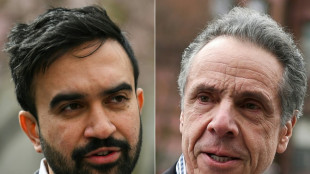
-
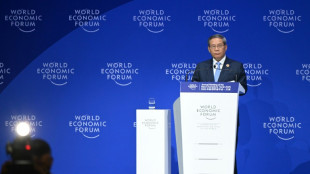 China's premier warns global trade tensions 'intensifying'
China's premier warns global trade tensions 'intensifying'
-
Chelsea through to Club World Cup knockouts, Benfica beat Bayern

-
 Cummins says Green 'long-term option' as Australia face new-look Windies
Cummins says Green 'long-term option' as Australia face new-look Windies
-
Chelsea east past Esperance and into Club World Cup last 16

-
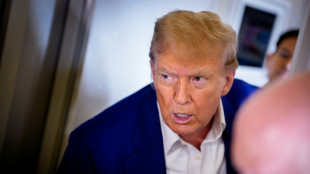 Stocks rally as Iran-Israel ceasefire holds, oil claws back some losses
Stocks rally as Iran-Israel ceasefire holds, oil claws back some losses
-
Trump whirlwind to test NATO summit unity
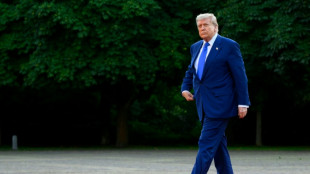
-
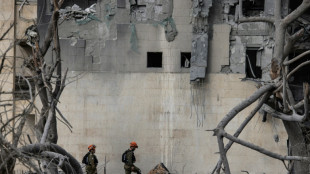 Israel claims victory as US intel says Iran nuclear sites not destroyed
Israel claims victory as US intel says Iran nuclear sites not destroyed
-
Benfica beat Bayern at Club World Cup as Auckland City hold Boca
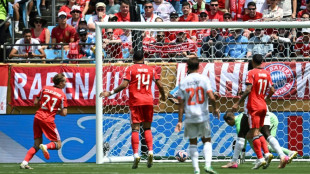
-
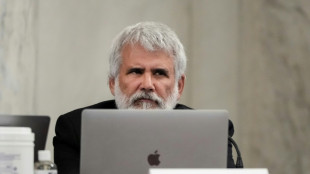 RFK Jr's medical panel to revisit debunked vaccine claims
RFK Jr's medical panel to revisit debunked vaccine claims
-
Sean Combs trial: Takeaways from testimony

-
 Messi and Miami relishing reunion with PSG and Enrique
Messi and Miami relishing reunion with PSG and Enrique
-
At least 10 dead in Colombia landslide
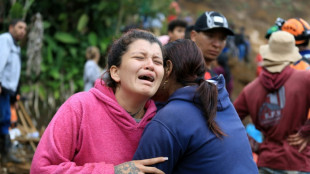
-
 Extreme heat, storms take toll at Club World Cup
Extreme heat, storms take toll at Club World Cup
-
France's Versailles unveils AI-powered talking statues
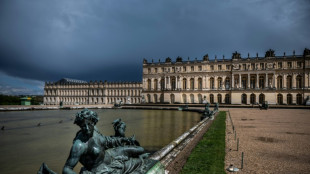
-
 Child vaccine coverage faltering, threatening millions: study
Child vaccine coverage faltering, threatening millions: study
-
Club World Cup winners team who handles weather best: Dortmund's Kovac

-
 FIFA launch probe into Rudiger racism allegation
FIFA launch probe into Rudiger racism allegation
-
Trump rattles NATO allies as he descends on summit
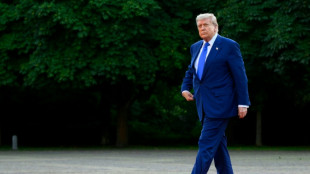

Trump launches 'reciprocal tariffs' targeting allies and adversaries
US President Donald Trump announced plans Thursday for sweeping "reciprocal tariffs" hitting both allies and competitors, in a dramatic escalation of an international trade war that economists warn could fuel inflation at home.
Speaking in the Oval Office, Trump said he had decided to impose the reciprocal duties, telling reporters that US allies were often "worse than our enemies" on trade issues.
The levies would be tailored to each US trading partner and consider factors including value added tax (VAT).
Trump has announced a broad range of tariffs targeting some of the biggest US trading partners since taking office, arguing that they would help tackle unfair practices -- and in some cases using the threats to influence policy.
The president has referred to tariffs as a way to raise revenue, remedy trade imbalances and pressure countries to act on US concerns.
Trump's announcement came hours before he was due to meet Indian Prime Minister Narendra Modi in Washington.
It remains unclear when exactly the tariffs would take effect, if imposed.
Analysts have warned that reciprocal duties could bring a broad tariff hike to emerging market economies such as India and Thailand, which tend to have higher effective tariff rates on US products.
Countries such as South Korea that have trade deals with Washington are less at risk from this move, analysts believe.
- Inflation concerns -
Cost-of-living pressures were a key issue in the November election that saw Trump sweep to power, and the Republican has promised to swiftly reduce prices.
But economists caution that sweeping tariffs on US imports would likely boost inflation, not reduce it, in the near term and could weigh on growth eventually.
Trump's nominee for commerce secretary Howard Lutnick, however, has pushed back on the idea that duties would cause widespread inflation, even as certain costs might rise.
Trump's deputy chief of staff for policy Stephen Miller previously said countries use the VAT to get an unfair trade advantage, although analysts have challenged this characterization.
During election campaigning, Trump promised: "An eye for an eye, a tariff for a tariff, same exact amount."
For example, if India imposes a 25-percent tariff on US autos, Washington will have a 25-percent tariff as well on imports of autos from India, explained a Nomura report this week.
The consideration of non-tariff factors might shift this calculus.
Modi will hold talks with Trump on Thursday and New Delhi offered some quick tariff concessions ahead of his visit, including on high-end motorcycles.
"Trump's objective of implementing reciprocal tariffs is to ensure fair treatment for US exports, which could indirectly also address US trade imbalances with partner countries," analysts at Nomura said.
Among Asian economies, India has a 9.5-percent weighted average effective tariff on US exports, while there is a three-percent rate on India's exports to the United States.
Thailand has a 6.2-percent rate and China a 7.1-percent rate on US products, Nomura noted.
Higher tariffs are often imposed by poorer countries, who use them as a tool for revenue and protection because they have fewer resources to impose non-tariff barriers, Cato Institute's Scott Lincicome earlier told AFP.
S.AbuJamous--SF-PST
